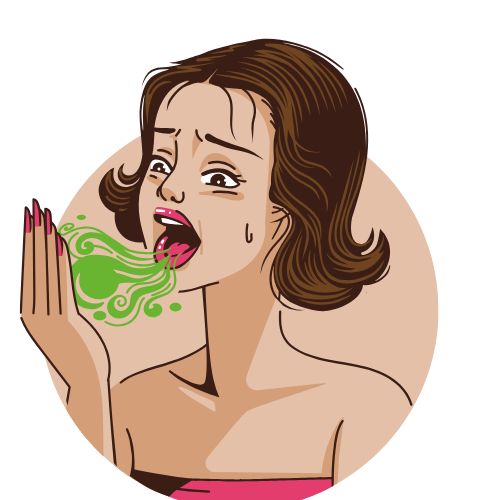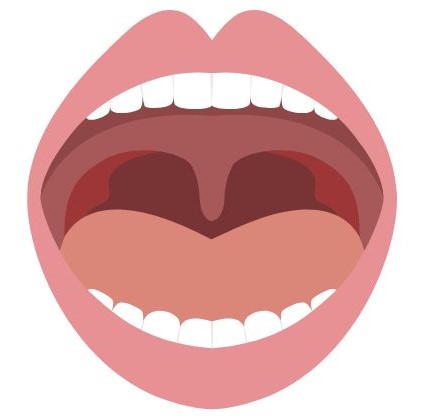Waking up with morning breath is a familiar experience for many, often met with a mix of embarrassment and discomfort. While it’s a natural occurrence resulting from overnight physiological processes, the unpleasant odor can impact your confidence and interactions, especially in close social situations. Morning breath, clinically known as halitosis, can vary in intensity and duration, often depending on a variety of factors, including oral hygiene habits, dietary choices, and overall health.
Understanding the root causes of morning breath is essential for effective prevention. At night, the body undergoes several changes: saliva production decreases, allowing bacteria to thrive, and certain dietary choices from the previous day can linger in the mouth. Moreover, habits like sleeping with an open mouth or neglecting oral care can exacerbate the problem.
The good news is that morning breath can often be prevented with simple lifestyle adjustments and effective oral hygiene practices. This article will delve into the various factors contributing to morning breath and provide a comprehensive guide on practical strategies you can implement to wake up with fresh breath each day. By prioritizing oral health and adopting proactive habits, you can improve your overall well-being and confidently face each new morning.
Understanding the Causes of Morning Breath
Morning breath, or halitosis, is typically the result of a combination of factors that occur during sleep. Understanding these underlying causes can help you effectively address and prevent the issue.
1. Dry Mouth (Xerostomia)
Saliva Production:
- Saliva plays a crucial role in maintaining oral health. It helps neutralize acids produced by bacteria, wash away food particles, and provides enzymes that begin the digestive process. During sleep, saliva production decreases significantly, which can lead to a dry mouth.
Effects of Dry Mouth:
- A dry mouth creates an environment where bacteria can thrive. Without sufficient saliva, these bacteria break down food particles and produce volatile sulfur compounds (VSCs), which are primarily responsible for the foul odor associated with morning breath.
Factors Contributing to Dry Mouth:
- Breathing through the mouth while sleeping, certain medications (like antihistamines and antidepressants), and health conditions (such as diabetes or Sjögren’s syndrome) can exacerbate dry mouth.
2. Bacterial Growth
Oral Bacteria:
- The human mouth contains hundreds of species of bacteria, some of which are beneficial while others can contribute to bad breath. During sleep, the reduction in saliva allows these bacteria to multiply unchecked.
Bacterial Metabolism:
- As bacteria break down food particles and dead cells, they produce waste products, including sulfur compounds. These compounds emit strong odors that can lead to morning breath.
Biofilm Formation:
- Plaque, a sticky biofilm that forms on teeth and gums, can trap bacteria. If not removed through regular brushing and flossing, plaque can contribute to both bad breath and gum disease.
3. Poor Oral Hygiene
Inadequate Brushing and Flossing:
- Failing to brush and floss regularly can lead to the buildup of plaque and food debris in the mouth. This not only increases the bacterial load but also creates an environment ripe for odors.
Neglecting the Tongue:
- The surface of the tongue can harbor a significant amount of bacteria and debris. Without proper cleaning, this can contribute heavily to morning breath. Using a tongue scraper or brushing your tongue can help mitigate this issue.
4. Diet
Food Choices:
- Certain foods are notorious for causing bad breath. Foods like garlic, onions, and spicy dishes contain sulfur compounds that can linger in the mouth and affect breath freshness. These compounds can also be absorbed into the bloodstream and released through the lungs, contributing to bad breath even after the food is digested.
Impact of Sugary Foods:
- Consuming sugary foods can encourage bacterial growth, leading to an increase in plaque buildup and subsequent bad breath. Sugar feeds harmful bacteria, exacerbating the problem.
5. Health Conditions
Gum Disease:
- Conditions like gingivitis and periodontitis involve inflammation and infection of the gums, which can lead to persistent bad breath. Bacteria associated with gum disease produce odor-causing compounds.
Respiratory Issues:
- Infections in the respiratory tract, such as sinus infections or colds, can contribute to bad breath. Mucus accumulation and post-nasal drip can create a breeding ground for bacteria.
Gastrointestinal Problems:
- Conditions like gastroesophageal reflux disease (GERD) can lead to the backflow of stomach acids and food particles into the esophagus, contributing to bad breath.
6. Lifestyle Factors
Tobacco Use:
- Smoking or using other tobacco products can lead to dry mouth, as well as contribute to gum disease, both of which are significant factors in morning breath.
Alcohol and Caffeine:
- Both alcohol and caffeine can dehydrate the body and reduce saliva production. Consuming these substances, especially before bedtime, can worsen morning breath.
Morning breath is influenced by a complex interplay of physiological, dietary, and lifestyle factors. By understanding these causes, you can take targeted actions to prevent bad breath and improve your oral hygiene routine. This knowledge empowers you to make informed decisions that can lead to fresher breath and enhanced overall health.
Effective Strategies to Prevent Morning Breath
1. Maintain Good Oral Hygiene
Brushing and Flossing:
- Brush your teeth at least twice a day using fluoride toothpaste. Pay special attention to the gum line and the back molars.
- Floss daily to remove food particles and plaque between teeth that your toothbrush can’t reach.
Tongue Cleaning:
- Use a tongue scraper or your toothbrush to gently clean your tongue. This helps remove bacteria and food particles that can cause bad breath.
2. Stay Hydrated
Drink Water:
- Ensure you drink enough water throughout the day to maintain saliva production. A hydrated body produces more saliva, which helps wash away bacteria and food particles.
Limit Caffeine and Alcohol:
- Both caffeine and alcohol can contribute to dry mouth. If you consume these beverages, consider balancing them with water to stay hydrated.
3. Use Mouthwash
Antimicrobial Mouthwash:
- Rinse with an antimicrobial mouthwash before bed. This can help reduce bacterial growth and provide a fresher breath.
Avoid Alcohol-Based Mouthwash:
- While alcohol-based mouthwashes may temporarily mask bad breath, they can dry out the mouth. Choose alcohol-free options for better hydration.
4. Chew Sugar-Free Gum
Stimulate Saliva Production:
- Chewing sugar-free gum can stimulate saliva flow, helping to wash away bacteria and food particles. Look for gum containing xylitol, which has additional antibacterial properties.
5. Consider Your Diet
Avoid Strong Odors Before Bed:
- Limit the intake of strong-smelling foods, such as garlic and onions, especially in the evening.
Eat Crunchy Fruits and Vegetables:
- Foods like apples, carrots, and celery can help scrub away plaque and stimulate saliva production.
6. Quit Smoking
Address Tobacco Use:
- Smoking contributes to dry mouth and bad breath. Quitting smoking can significantly improve oral health and reduce morning breath.
7. Sleep with Your Mouth Closed
Nasal Breathing:
- Try to breathe through your nose while sleeping. Mouth breathing can dry out your mouth, worsening morning breath. If you have difficulty breathing through your nose due to allergies or nasal congestion, consider consulting a healthcare provider.
8. Use a Humidifier
Maintain Moisture in the Air:
- If you live in a dry climate or sleep with air conditioning or heating, using a humidifier in your bedroom can help keep your mouth moist overnight.
9. Regular Dental Check-Ups
Professional Cleanings:
- Schedule regular dental check-ups every six months. Your dentist can identify any oral health issues, such as gum disease or cavities, that may contribute to bad breath.
Address Underlying Conditions:
- If persistent morning breath is an issue, your dentist can help determine if there’s an underlying health condition requiring attention.

Morning breath is a common issue, but with proper care and attention to oral hygiene, it can be effectively managed. By maintaining good oral hygiene, staying hydrated, being mindful of your diet, and adopting other preventive measures, you can minimize the chances of waking up with unpleasant breath. If you continue to experience morning breath despite these efforts, consider consulting a healthcare professional for further evaluation. Start each day with confidence and freshness by implementing these strategies into your routine!







